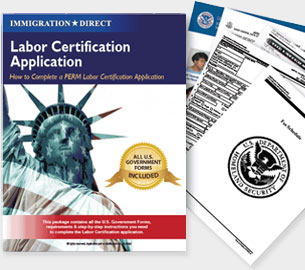By Ruthie Sanchez | Published April 4, 2018 | Posted in Employment Related, For Employers | Tagged Tags: H-2B visa, h2b visa, seasonal workers, temporary workers, work visa | Comments Off on When Is an H-2B Visa Appropriate?
- Home
- Attorney Profiles
- Practice Areas
- Family-Based Immigrant Visas
- Employment-Based Immigrant Visas
- Nonimmigrant Visas
- Types of Nonimmigrant Visas
- Visas for Foreign Investors (Type E)
- Nonimmigrant Temporary Work Visas
- H1B Visa Category
- H-2B Visa for Unskilled Temporary Worker
- J-1 Visa Program for Work-Trainees & Physicians
- Visa for Extraordinary Abilities (Type O)
- TN Work Visa for Canada and Mexico Citizens
- Visa for Australian to Work in USA (E3)
- PERM-Labor Certifications
- Deportation
- Deferred Action
- U Visa
- VAWA Applications
- Blog
- Helpful Resources
- Reviews and Awards
- Contact Us
- Home
- Attorney Profiles
- Practice Areas
- Family-Based Immigrant Visas
- Employment-Based Immigrant Visas
- Nonimmigrant Visas
- Types of Nonimmigrant Visas
- Visas for Foreign Investors (Type E)
- Nonimmigrant Temporary Work Visas
- H1B Visa Category
- H-2B Visa for Unskilled Temporary Worker
- J-1 Visa Program for Work-Trainees & Physicians
- Visa for Extraordinary Abilities (Type O)
- TN Work Visa for Canada and Mexico Citizens
- Visa for Australian to Work in USA (E3)
- PERM-Labor Certifications
- Deportation
- Deferred Action
- U Visa
- VAWA Applications
- Blog
- Helpful Resources
- Reviews and Awards
- Contact Us
When Is an H-2B Visa Appropriate?
When an American employer needs workers to provide labor or services and cannot find the appropriate labor force in the United States, that company may apply for H-2B visas, which allow non-citizen workers into the country temporarily to work that job. What Is an H-2B Visa? H-2B visas are only issued to non-agricultural workers, and Read More
Read More
Proposed Changes to STEM Extension Rules Provide Students up to 3-years of Practical Training
By Ruthie Sanchez | Published November 3, 2015 | Posted in Employment Related | Tagged Tags: STEM extensions, U.S. Department of Homeland Security | Leave a comment
International students with Science, Technical, Engineering and Math (STEM) degrees may become eligible to work in the U.S. for up to 3 years under new proposed rules. On October 19, 2015 the U.S. Department of Homeland Security (DHS) issued proposed changes to its regulations, which offer both additional benefits and employer requirements for students and Read More
Read More
Immigrant Investor Program in Danger?
By Ruthie Sanchez | Published September 22, 2015 | Posted in Citizenship, Employment Related, For Employers, Immigration Reform, Residence, Visas | Tagged Tags: EB-5, foreign investment, Immigrant Investor Program, immigration law, legal permanent residency | Leave a comment
The Immigrant Investor Program, also known as EB-5, is set to expire on September 30th as Congress continues to debate its merits. The EB-5 program enables foreigners to obtain legal permanent residency in the US through investment in a new commercial enterprise. Although the program brings almost $2 billion into the US annually, it has Read More
Read More
New guidance for H-1B employers
By Ruthie Sanchez | Published August 31, 2015 | Posted in Employment Related, For Employers | Tagged Tags: H-1B visas | Leave a comment
Many H-1B employers, especially in the IT industry, send their employees to various locations to work for clients. Unfortunately, they don’t always realize that such a move could result in revocation of an H-1B visa. On July 21, 2015, USCIS released its final guidance on when such employers must file an amended or new H-1B Read More
Read More
PERM still causing problems for employers with foreign workers
By Ruthie Sanchez | Published August 24, 2015 | Posted in Employment Related, For Employers | Tagged Tags: Department of Labor, PERM | Leave a comment
This year marks the 10 year anniversary of PERM (Program Electronic Review Management). PERM was supposed to help employers speed up permanent residency applications for foreign workers. It allows employers to submit an Application for Permanent Employment Certification directly with the Department of Labor (DOL) to reduce labor certification times. Although PERM improved approval times Read More
Read More
Expanded Work Authorization for Spouses of H-1B Visa Holders
By Ruthie Sanchez | Published July 13, 2015 | Posted in Employment Related, Visas, Your Family | Tagged Tags: H-1B visas | 1 Comment
New rules to benefit the families of H-1B visa holders went into effect on May 26,, 2015. The Department of Homeland Security (“DHS”) granted certain spouses with H-4 visas the ability to seek employment authorization so they could work in the US. The purpose behind the new regulation is to help the US attract and Read More
Read More
H1B Stem Visas – Addressing the Myths
By Ruthie Sanchez | Published May 6, 2015 | Posted in Employment Related | Tagged Tags: H-1B visas | Leave a comment
In today’s labor market, foreign workers fill a critical need — particularly in the Science, Technology, Engineering, and Math (STEM) fields. The H-1B Visa program has provided the main route for these skilled foreign workers to pursue opportunities with U.S. companies, enabling them to take domestic jobs that might otherwise remain unfilled.
Read More
Illegal Immigrant Personal Injury
By Ruthie Sanchez | Published May 5, 2015 | Posted in Employment Related | Tagged Tags: access to courts, negligence | Leave a comment
Immigrants, Regardless of Their Status, Have the Right to Obtain Compensation in Personal Injury Lawsuits in New York Over the years, I have consulted with more than one thousand individuals who have been injured as a result of negligence. Since I work at a law firm that also handles immigration matters, I have been asked Read More
Read More-
Q: My employer wants to sponsor me to get a green card – can they?
If you entered the United States without visa and are working here without legal documentation, your employer may be able to help you. But it’s important to understand that just because your employer wants to help doesn’t mean you will be able to obtain a green card. The process for obtaining a green card is complicated and depends on many factors, including your prior history (and your family’s prior history) in the United States. So it’s good that your employer wants to help but the first step is to call us for an interview so we can understand more about your situation.
-
Q: How can I get a work permit?
A work permit is a common way of referring to an Employment Authorization Document (EAD), which is issued by the Immigration Service (which is part of the U.S. Department of Homeland Security). Under U.S. law, you need a work permit or EAD in order to become a legal employee of a U.S. company. Many lawyers will promise to get you a work permit, but you have to be careful about this. The catch is that you can’t simply apply for a work permit or EAD in itself. In order to apply for a work permit you have to make an application for legal status in this country on some other basis. Don’t believe any other lawyer or person who tells you it’s an easy thing to get a work permit. Call us for an interview and we can explain to you how the process and immigration laws in the United States really work.
-
Q: Can I apply for deferred action now?
As a result of the injunction issued by the District Court in Texas, applications for the expanded DACA program and DAPA are currently on hold. The Department of Homeland Security is not currently accepting requests for the expansion of DACA, as originally planned. Until further notice, it has suspended the plan to accept requests for DAPA.
-
Q: Does the new executive order or court injunction change Deferred Action protection under existing DACA?
The Court’s order does not affect the existing DACA. Individuals may continue to come forward and request initial grant of DACA or renewal of DACA pursuant to the guidelines established in 2012. This ruling only delays the start of DAPA and the expansion of DACA.
-
Q: Who can I contact for more help or information?
It’s important that you speak with a qualified attorney who can explain all the options and issues relating to your immigration status. Do not take advice about your immigration case from a notary public or an immigration consultant. The U.S. immigration laws and rules are very complicated and many people take advantage of undocumented immigrants, making promises and charging money without providing honest advice. Contact only a qualified immigration lawyer for legal advice about your case. If you encounter 'notarios' who offer legal advice without a license, report it.
-
Q; What should I do now?
You can begin preparing now! Even though DHS is not currently accepting applications under DAPA or the expanded DACA programs, individuals who are potentially eligible for Deferred Action status should begin preparing their applications now. It is very likely that the Texas decision will be overturned and there will probably be a rush of applicants when that happens. Individuals should be ready with their applications and start now by gathering the necessary documentation and seeking good counsel to give themselves the best chance for success and to avoid potential problems.
-
Q: I haven’t seen my mother since I came to the U.S. 10 years ago. Can I apply for a visa so she can join me here?
If you are a U.S. citizen or have a Green Card, then yes, you can apply for a visa for your family members. But the process can take a long of time, depending on your own status. If you’re a U.S. citizen, it might take 8 months to a year to process the application. The waiting time will be much longer if you’re a Green Card holder. Generally, the sooner you start the process the better, so contact one of our attorneys now to get started or browse our site to learn more about the different types of visas available for family members.
-
Q: My grandma is sick back home – can I go visit her?
Whether you can travel abroad depends on your immigration status. If you have been granted DACA or if you have a Green Card in hand – you still must ask for advanced permission in order to leave the country. This is called advanced parole. Obtaining advance parole is relatively inexpensive. But it is not without risk, because there is really no way to guarantee that you will be able to return. Your return is ultimately within the discretion of the authorities at the point of your reentry to the U.S.
-
Q: Can our company sponsor an employee to get a green card?
If one of your employees entered the United States without visa and is working here without legal documentation, you may be able to help this person obtain legal immigration status. This doesn’t necessarily mean they will be able to obtain a green card. The process for obtaining a green card is complicated and depends on many factors, including a person’s prior history (and their family’s prior history) in the United States. It’s definitely helpful to their case if you, as their employer, are willing to help, but the first step is to have the employee call us for an interview so we can understand more about their situation.
-
Q: What is a work permit?
A work permit is a common way of referring to an Employment Authorization Document (EAD), which is issued by the Immigration Service (which is part of the U.S. Department of Homeland Security). Under U.S. law, an employee needs a work permit or EAD in order to become a legal employee of a U.S. company. Many lawyers will promise to get undocumented immigrants work permit. But you have to be careful about this. The catch is that you can’t simply apply for a work permit or EAD in itself. In order to apply for a work permit a person must make an application for legal status in this country on some other basis. So don’t let your employees get gulled into believing that it’s easy to get a work permit by some lawyer or hustler on the street corner. Call us for an interview and so we can explain to your employees how the process and the immigration laws in the United States really work.










